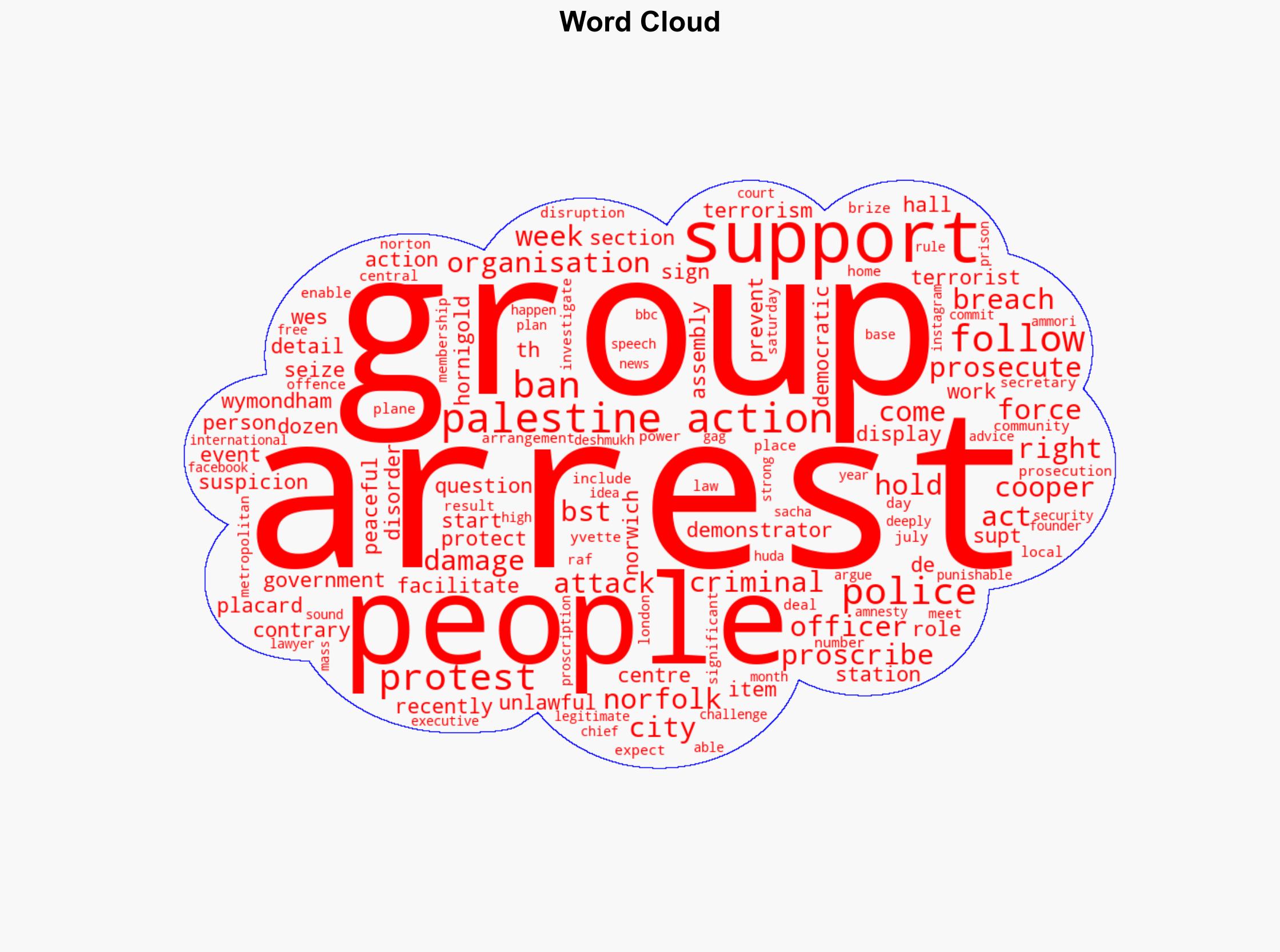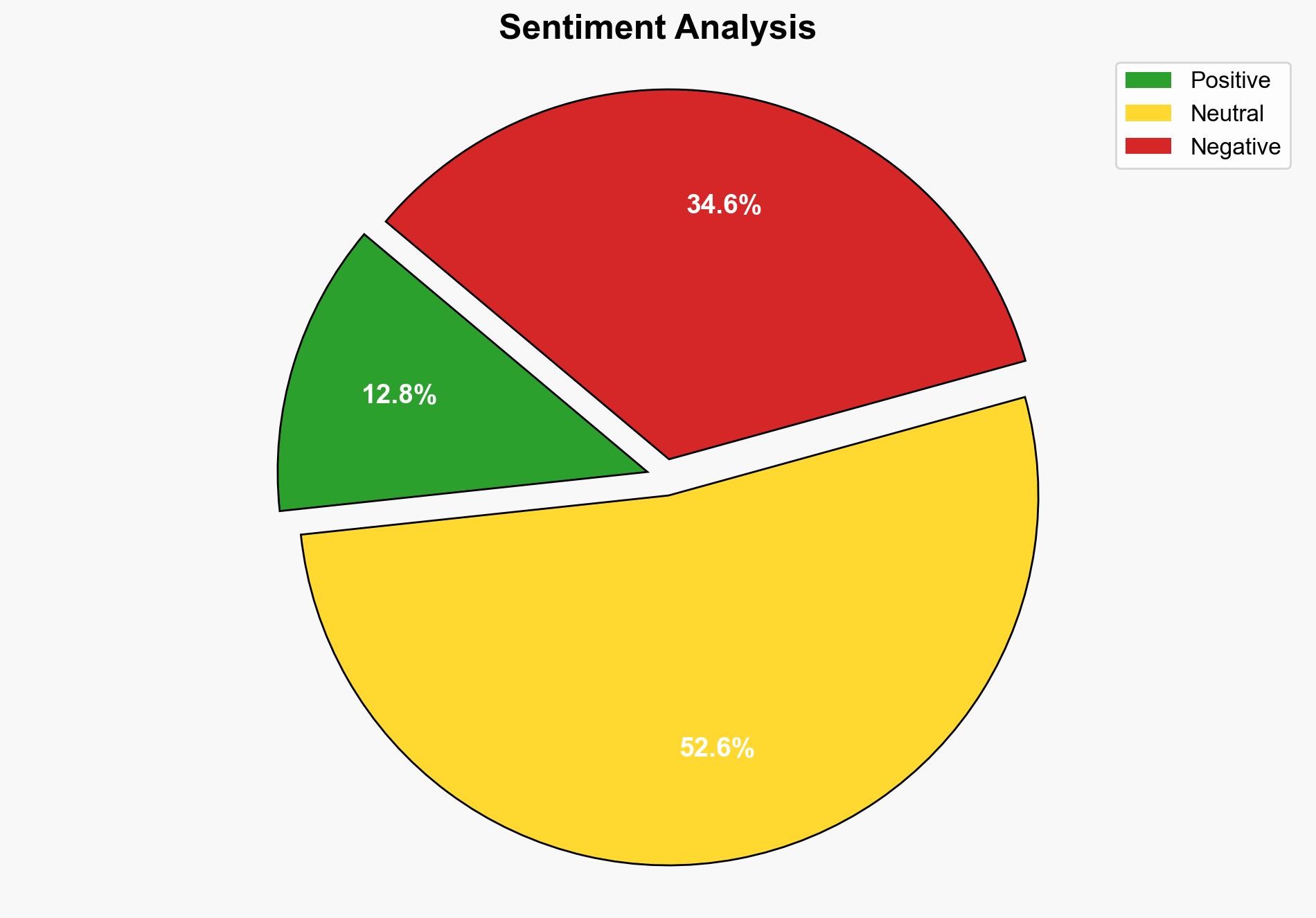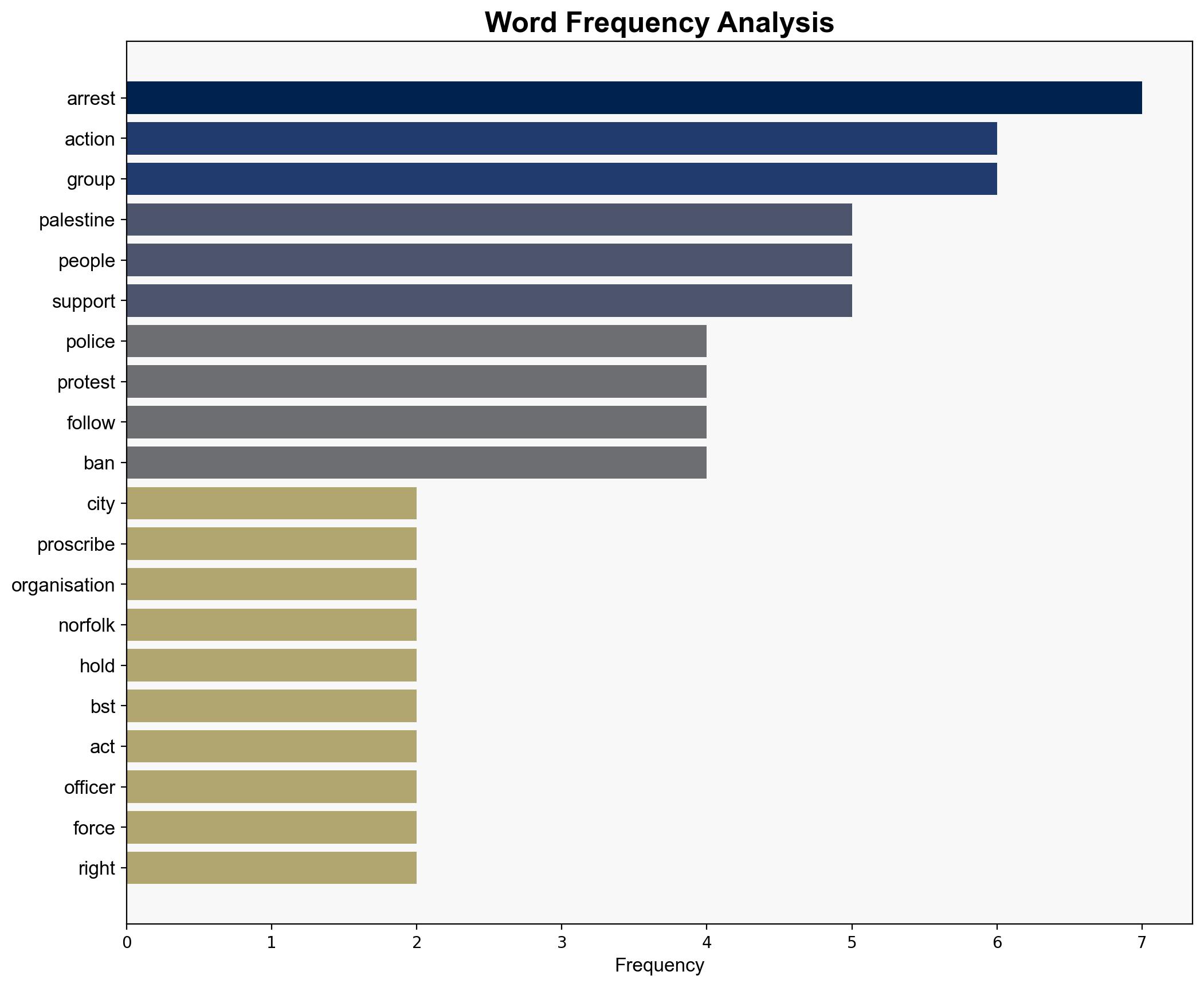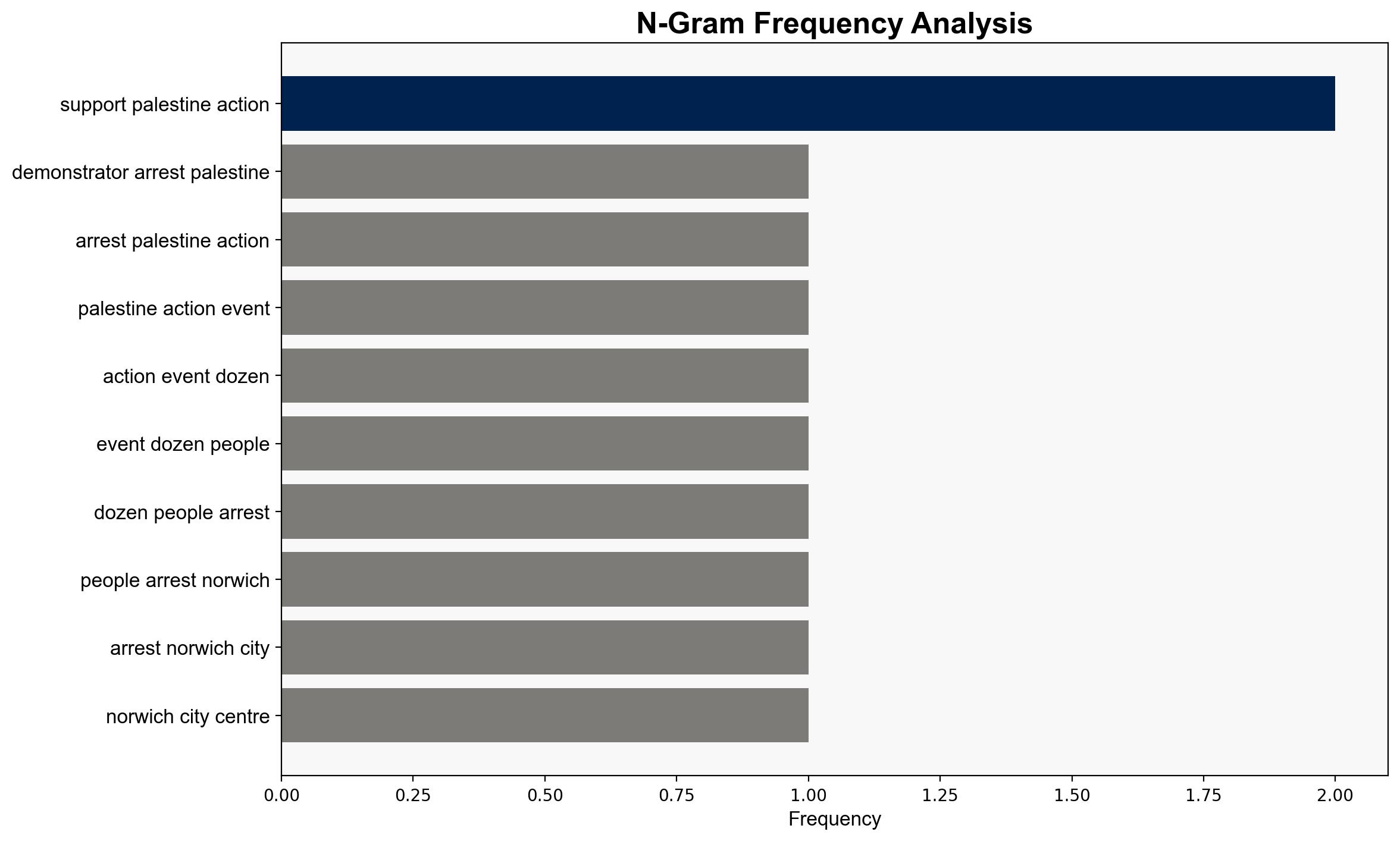More than a dozen arrests at Palestine Action protest in Norwich – BBC News
Published on: 2025-08-16
Intelligence Report: More than a dozen arrests at Palestine Action protest in Norwich – BBC News
1. BLUF (Bottom Line Up Front)
The arrests at the Palestine Action protest in Norwich highlight the tensions between national security measures and civil liberties. The most supported hypothesis suggests that the arrests are part of a broader government strategy to enforce the recent proscription of Palestine Action as a terrorist organization. Confidence Level: Moderate. Recommended action includes monitoring legal proceedings and public sentiment to anticipate potential civil unrest.
2. Competing Hypotheses
1. **Hypothesis 1**: The arrests are a direct enforcement of the proscription of Palestine Action, aimed at deterring support for the group and preventing potential terrorist activities.
2. **Hypothesis 2**: The arrests are primarily a political maneuver to suppress dissent and limit the freedom of assembly and speech, using the proscription as a legal pretext.
Using ACH 2.0, Hypothesis 1 is better supported by the fact that arrests were made under the Terrorism Act, indicating a legal framework aligned with national security objectives. Hypothesis 2 lacks substantial evidence but is plausible given the involvement of civil rights organizations challenging the proscription.
3. Key Assumptions and Red Flags
– **Assumptions**: It is assumed that the proscription of Palestine Action was based on credible security threats. Another assumption is that the arrests were conducted with sufficient legal justification.
– **Red Flags**: The lack of transparency regarding the specific threats posed by Palestine Action raises questions. The timing of the arrests and the public statements by civil rights groups suggest potential bias or overreach.
– **Blind Spots**: The actual impact of Palestine Action’s activities on national security is not detailed, leaving a gap in understanding the proportionality of the response.
4. Implications and Strategic Risks
The arrests could lead to increased public unrest and further protests, potentially escalating into broader civil disobedience. This situation may strain police resources and lead to reputational damage for the government if perceived as suppressing legitimate protest. The legal challenges to the proscription could set precedents affecting future counter-terrorism measures.
5. Recommendations and Outlook
- Monitor legal proceedings and public sentiment to assess the risk of escalation.
- Engage with civil rights organizations to address concerns and mitigate reputational risks.
- Scenario Projections:
- Best Case: Legal challenges are resolved, and public protests remain peaceful.
- Worst Case: Escalation into widespread civil unrest and international criticism.
- Most Likely: Continued legal and public scrutiny with isolated protests.
6. Key Individuals and Entities
– Yvette Cooper: Home Secretary involved in the proscription decision.
– Sacha Deshmukh: Amnesty International Chief Executive expressing concern over arrests.
– Huda Ammori: Founder of Palestine Action, challenging the proscription.
7. Thematic Tags
national security threats, civil liberties, counter-terrorism, legal challenges





